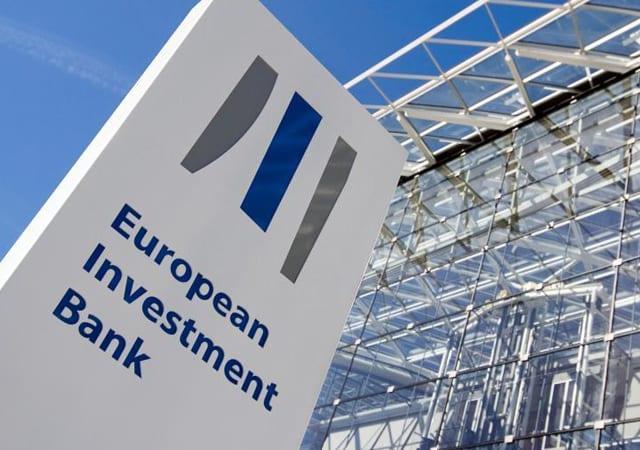Private sector investment across Africa, essential to tackle the impact of COVID and unlock sustainable growth, will be accelerated by new financing totalling EUR 62 million confirmed by EIB Global, the new specialised arm of the European Investment Bank earlier today. The announcements come ahead of the first physical Africa-Europe summit since the start of the COVID-19 pandemic.
The six new partnerships will support targeted private sector investment including high-tech innovation, rural microfinance and business financing from Cameroun to Malawi.
Werner Hoyer, The President of the European Investment Bank, the world’s largest international public bank, highlighted the crucial need to scale up cooperation, as part of Team Europe, between African financial institutions and international partners to ensure that Africa’s private sector can drive economic and social growth. Speaking ahead of his participation in the EU-AU Summit in Brussels, he said:
“Ensuring that African startups, entrepreneurs, smallholders and businesses can harness new opportunities, create jobs and expand is essential for Africa, Europe and the world. Over the last six decades the EIB has worked with financial partners across the continent to back Africa’s private sector. Today, as EIB Global, we are unveiling innovative high impact cooperation that will back businesses across the continent, strengthening economic resilience to the impact of COVID-19, and building a better future. The EU-Africa Business Forum ensures that the impact of scaling up sustainable private sector investment across Africa is recognised ahead of the EU-African Union summit.”
Speaking at the EU Africa Business Forum, Thomas Östros, Vice-President of the European Investment Bank (EIB): “I am very proud to announce 6 new agreements in the private sector. These deals are a result of this new Team Europe spirit of cooperation to make every development cent count. As the EU bank, we are committed to supporting entrepreneurs and companies of all sizes across the continent of Africa” He added: “Partnership is at the heart of our work and even more so since we launched EIB Global, our new specialised arm dedicated to increasing the impact of international partnerships and development finance. Our investments aims to benefit all parts of society: big cities, small villages, vulnerable regions, entrepreneurs, and of course women and girls.”
Accelerating investment in African tech startups
EIB Global is supporting two of Africa’s leading technology investors, Atlantica Ventures and Janngo, through the Boost Africa initiative. This is a joint initiative with the African Development Bank (AfDB), with financial support from the European Commission and the Organisation of African, Caribbean and Pacific States Secretariat (OACPS) under the 11th European Development Fund (EDF).
The EUR 12.5 million financing for Atlantica will support EUR 50 million of new investment in innovative technology start-up companies across the continent and expand specialist venture capital financing for promising entrepreneurs.
The new EUR 10 million EIB commitment to Janngo will increase investment in early-stage tech and tech driven start-ups to improve access to healthcare, education and financial services across Africa and allow Africa tech companies to create jobs for young people and women.
Ensuring access to finance in remote and fragile communities
Thousands of African entrepreneurs will benefit from local currency microfinance in rural areas where access to financial services remains limited through new EIB cooperation with the Grameen Credit Agricole Foundation and the European Solidarity Financing for Africa Fund (FEFISOL).
The latest EUR 10 million partnership between the EIB and the Grameen Credit Agricole Foundation will accelerate social inclusion and strengthen economic resilience to the pandemic, and is expected to support more than EUR 36,000 jobs and enable 98,000 new loans to female entrepreneurs in disadvantaged communities across Africa.
The EUR 5 million new financing for FEFISOL will allow smallholder farmers currently excluded from mainstream financing to access microfinance through small rural microfinance institutions and fair-trade certified agricultural cooperatives in 25 African countries.
The new European Solidarity Financing for Africa Fund, FEFISOL 2, builds on the successful support for rural microfinance delivered through the EIB-backed FEFISOL I, over the last decade.
Supporting private sector financing with leading local African banks
Smallholders across Malawi will benefit from EUR 12.5 million EIB backing for long-term agricultural financing in cooperation with First Capital Bank and the European Union.
The new programme, also supported by an EU grant, is the latest in a regional agricultural financing initiative. It will allow farmers in Malawi to modernise equipment and withstand challenges of a changing climate.
A EUR 12 million COVID resilience business financing initiative, also announced today, with the Commercial Bank of Cameroun will support manufacturing, services, agriculture and trading companies across the central African countries impacted by the pandemic by providing long-term financing essential for business expansion.


 Forex3 weeks ago
Forex3 weeks ago


 Naira2 weeks ago
Naira2 weeks ago
 Billionaire Watch2 weeks ago
Billionaire Watch2 weeks ago




 Naira2 weeks ago
Naira2 weeks ago




 Naira2 weeks ago
Naira2 weeks ago




 Naira4 weeks ago
Naira4 weeks ago


 Naira7 days ago
Naira7 days ago
 Banking Sector4 weeks ago
Banking Sector4 weeks ago





















